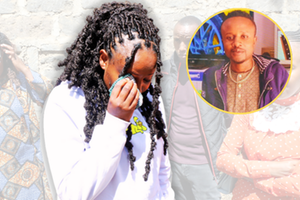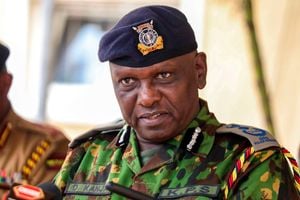WHO prequalifies new dengue vaccine, but Africa still not in the picture

A sample of drugs prescribed for a patient.
What you need to know:
- The vaccine, Qdenga (TAK-003), will be the second prequalified Dengue vaccine available in the market following the prequalification of Dengvaxia that is mainly inoculated to people who have had the virus before.
- The vaccine was developed by a Japanese pharmaceutical called Takeda and is recommended to children aged between the ages of six to 16 years in areas that are at risk of virus transmission.
The World Health Organisation (WHO) this week pre-qualified a new vaccine for a mosquito-borne disease called –Dengue, which is mostly reported in the coastal part of Kenya.
This is the first ever dengue vaccine that can be administered to people who have never been infected by the dengue virus.
The WHO prequalification means that the global health body assesses the quality, safety, and efficacy of the vaccine, therefore enabling countries to roll out to its population.
The vaccine, Qdenga (TAK-003), will be the second prequalified Dengue vaccine available in the market following the prequalification of Dengvaxia that is mainly inoculated to people who have had the virus before.
The vaccine was developed by a Japanese pharmaceutical called Takeda and is recommended to children aged between the ages of six to 16 years in areas that are at risk of virus transmission.
It is administered in a two-dose schedule with a three-month interval between the required doses.
“If the second dose is delayed for any reason, it is not necessary to restart the series and the second dose should be administered at the first available opportunity,” the WHO advises.
Dr Rogerio Gaspar, WHO Director for Regulation and Prequalification said Qdenga’s prequalification is vital for the expansion of global access to dengue vaccines since it is now suitable for procurement by UN agencies including UNICEF and Pan American Health Organisation (PAHO).
“With only two dengue vaccines to date prequalified, we look forward to more vaccine developers coming forward for assessment, so that we can ensure vaccines reach all communities who need it,” he said.
Qdenga is a live-attenuated vaccine, which means its composition is made up of weakened versions of all four dengue types (scientifically known as serotypes) namely; DEN-1, DEN-2, DEN-3, and DEN-4.
Kenya, just like most African countries, is yet to roll out the Dengue vaccine to its at-risk population despite dengue cases detection in the continent since the 1960s.
Even so, between 2014 and 2017, Kenya was one of the countries that the Dengue Vaccine Initiative initiated research studies to get data of the disease burden.
The study which was published in the scientific journal BMJ in 2018 concluded that Africa may be slow to take up dengue vaccine.
“Countries in Africa may not consider the introduction of a dengue vaccine as a priority in the near future due to many other competing public health problems and limited resources. For cost-effective implementation of public health interventions, accurate data on dengue burden from epidemiological studies would be needed for policy makers to make evidence-based decisions on control and prevention of dengue,” explains the study.
Another study published in the Pan Africa Medical Journal last year shows that Kenya has fewer data on the infections related to the dengue virus, which could be circulating at low levels in most areas in Kenya, with a possibility of an outbreak one day.
The researchers believe that the prevalence data of the dengue virus currently available does not precisely represent the severity of exposure, infection, disease, and its variation by region.
“Dengue Virus infection was unrecognized and/or unreported in most areas of the country, especially rural Kenya.
"This information may serve as a basis for better awareness and detection of DENV infection during outbreaks and in establishing appropriate prevention and control measures to further avoid outbreaks,” explains the researchers.
Their study reveals that blood samples from areas that are not endemic to the disease show a few positive cases.
“To fill the surveillance gap, areas in the country where testing has never been carried out need to be revealed. There is more dengue in Kenya than indicated by public health reporting, resulting in scanty information available regarding the incidence of dengue across Kenya,” they recommend.
This is even as scientists studying climate change cite dengue as one of the diseases whose spread will be fueled by the changing weather patterns.
A study conducted in Kenya in 2021 which was published in PLOS Neglected Tropical Disease shows that a month after a flooding episode, the number of Aedes aegypti (one of the mosquito species that causes dengue) increased significantly.
“Climate change continues to blur and transform previously discrete seasons, which will influence vector dynamics and disease burden in Kenya. For Aedes aegypti pupae, we observed significant increases in abundance following cold waves, but both droughts and heat waves were associated with significantly fewer vectors,” explain the researchers.
“An improved understanding of the relationship between extreme climate and dengue transmission can also allow for the development of climate-based early warning systems in Kenya,” they recommend.
Should the vaccine be introduced in the country, there are some sections of the population who are exempted from taking it including; pregnant women or breastfeeding mothers, people living with HIV, or people who were born with a weak immune system.





